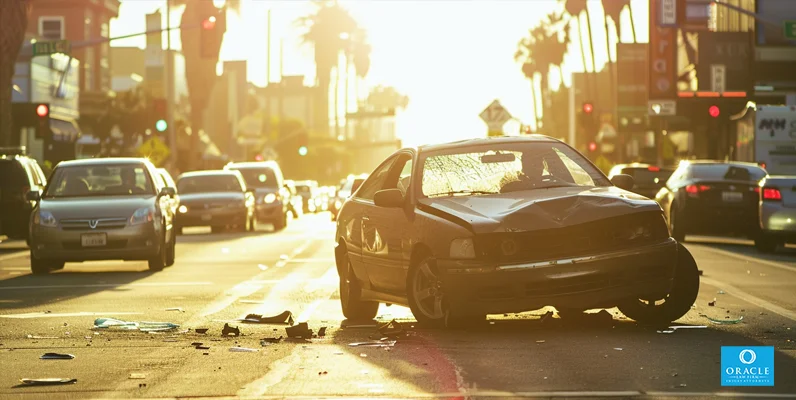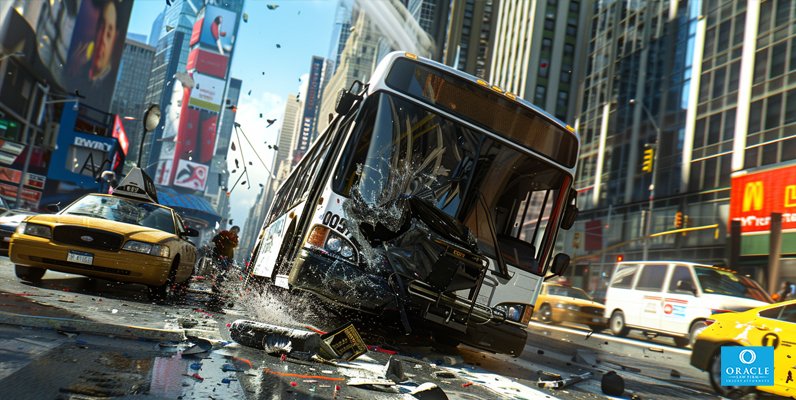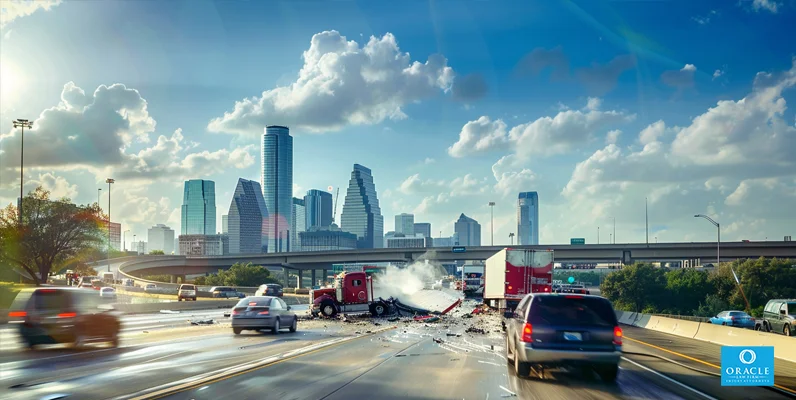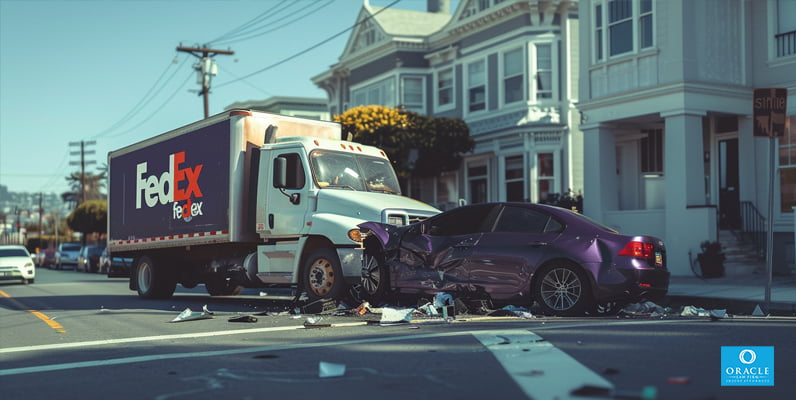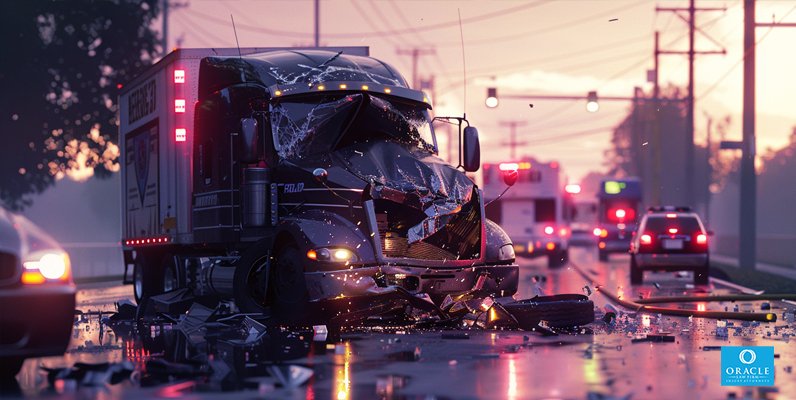Did you get into a Fender Bender accident? Promptly taking the right actions can limit further complications. This guide covers the critical steps to ensure your safety and protect your interests, from immediate post-accident procedures to handling insurance claims without delving too deep into each topic.
Key Takeaways
- Even minor fender benders can affect your insurance rates and driving record, so it’s crucial to handle them properly.
- After a fender bender, check for injuries, document the accident scene, exchange info with the other driver, and report the incident to the police.
- Keep detailed records of all expenses after a fender bender – medical, repair, towing, or rental car costs – as they might be reimbursable by insurance or legal action.
Understanding Fender Benders: Definition and Implications
First things first, what exactly is a fender bender? It’s a minor car accident with minimal damage, typically involving the fender area of a vehicle and no serious injuries. Think of scenarios like ‘rear-enders’ at stoplights or collisions while backing out of parking spaces – these are the most common culprits of fender benders.
Although they might seem trivial, fender benders can have real implications. They can influence insurance premiums and even result in points on your driver’s license. So, while they might not cause significant physical harm, they can cause a financial headache if not handled correctly.
But don’t worry! We’re here to guide you through the process. You can lessen their impact and effortlessly manage the aftermath by becoming aware of and ready for the possible consequences of fender benders.
Let’s start with the immediate actions you should take right after a fender bender.
Immediate Actions to Take After a Fender Bender
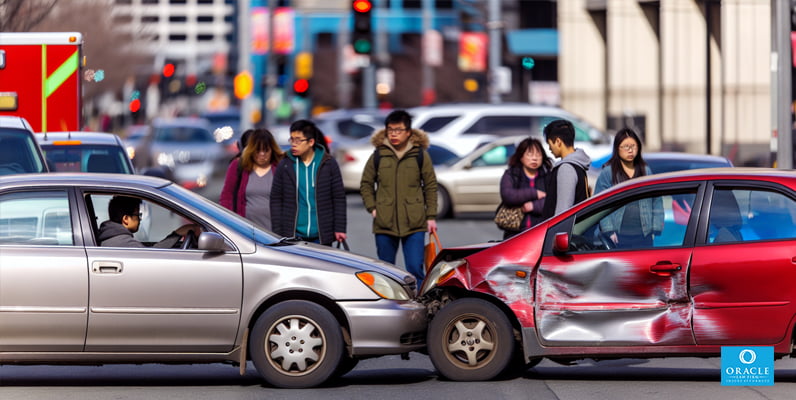
After a minor car accident, which can be considered a minor accident, it is essential to:
- Maintain composure
- Evaluate injuries
- Move the vehicle to a safe location if feasible
- Report the accident to the police without accepting the blame
Following these steps is necessary to ensure a proper response to the accident.
Let’s break down these actions into more detail.
Assessing Injuries and Seeking Medical Help
The adrenaline rush following minor accidents, such as a minor car accident, can often mask pain, meaning you might not immediately feel any injuries. For this reason, it’s vital to get medical help following a fender bender. Even at low speeds, injuries such as:
- whiplash
- back and neck injuries
- head injuries
- soft tissue injuries
can result from the sudden impact.
It is essential to evaluate for injuries right after a fender bender, even if there are no immediate signs of injury. This is not only important for your health but also for the insurance claim procedure.
Medical documentation of injuries is essential for insurance support in potential personal injury claims. Some injuries like whiplash might only become apparent days or weeks later, and having a medical record of them can be a lifesaver when dealing with insurance companies.
Documenting the Accident Scene
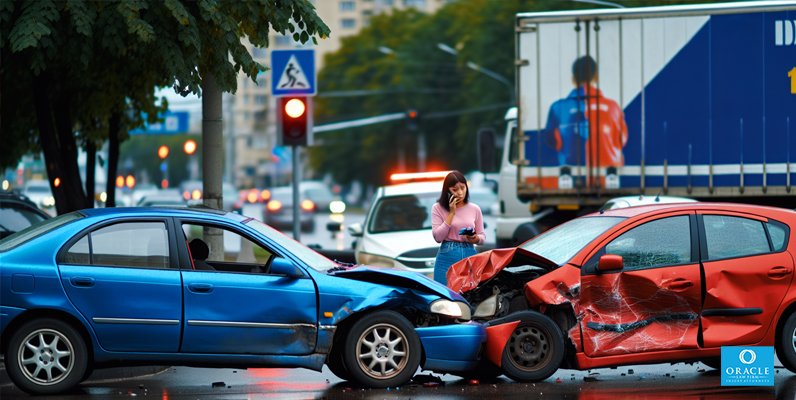
After confirming everyone’s safety and getting the needed medical help, the next move is to record details of the accident scene. This can provide crucial evidence for insurance companies, helping to establish a timeline and the dynamics of what happened.
Start by taking photos and videos of the vehicles involved, the damages, and the environment. Capture details like license plates, damage on all cars, and the road layout. If there were any witnesses, collect their contact details too. Eyewitness accounts can be vital for further investigation by the insurance company or attorney.
In addition to photographing the scene, jot down notes on injuries and road conditions and obtain a copy of the police report if officers were present. All this information will be valuable when dealing with insurance companies and potential legal proceedings.
Exchanging Information with the Other Driver
After you have recorded the scene, it’s essential to swap details with the other driver. This is a critical step, as it will significantly assist in resolving any subsequent insurance claims or legal issues.
Make sure to gather the following information from the other driver:
- Full name
- Home address
- Phone number
- Email address
- Name of their driver’s insurance company, which is the other driver’s insurance company
- Policy number
In most states, providing this information at the scene is mandatory.
Don’t forget to note down details about the other vehicle, including:
- make
- model
- color
- license plate number
If the driver doesn’t own the car, collect the owner’s contact information and relationship with the driver. All these details will be instrumental in resolving any subsequent claims or disputes.
Dealing with Insurance Companies
Interacting with insurance companies can sometimes seem like finding your way through a labyrinth. But don’t worry, we’ve got you covered. Start by filing a claim with your insurance company shortly after the fender bender. This should ideally be within 30 days of the incident to ensure compliance with policy requirements.
Obtaining a police report provides official documentation of the fender bender, which is extremely useful for insurance purposes. Determining how to file a claim depends on your state’s fault system. You can include a third-party claim against the at-fault driver’s insurance or use your coverage.
If you use your collision insurance for repairs, the deductible will reduce the payout. However, this could be recovered if your insurer seeks reimbursement from the at-fault party’s insurer. In any case, promptly contacting your insurance company is recommended, even if you believe the other party is at fault. They can assist with repairs and sorting out any accident discrepancies.
Handling Vehicle Repairs and Rental Cars

Following the immediate consequences of a fender bender, you should focus on the vehicle repairs and the need for rental cars. The responsibility for paying vehicle repairs depends on who is at fault and the insurance policy terms, including the deductible amount.
If your vehicle needs to be towed or stored, document these expenses. They can be substantial and may be reimbursed by the at-fault party’s insurance. Remember that out-of-pocket expenses like insurance deductibles for vehicle repairs are usually recoverable through a settlement or court judgment. This makes keeping detailed records essential.
When it comes to rental cars, if the other driver is at fault, their auto insurance company, which includes liability insurance, will generally cover the cost of your rental car, subject to their policy limits and the type of rental vehicle. But remember, maintaining and organizing all repair shop invoices, towing or rental service receipts, and records of lost wages due to injury recovery is vital when dealing with insurance companies or in legal proceedings.
Legal Considerations and Hiring a Personal Injury Lawyer
Should the fender bender cause any injuries, consulting a personal injury lawyer is recommended. They can help clarify liability, particularly in complex situations with unclear faults or multiple parties, and guide individuals unfamiliar with legal procedures such as filing lawsuits.
Minor car accidents can lead to medical costs and impact your work. A lawyer can help obtain significant compensation if injuries are more severe than initially thought. Experienced lawyers can reconstruct accidents, distinguish between old and new injuries for claims, and ensure fair compensation for losses, including diminished value after repairs.
Attorneys guide clients through the legal system, helping determine the appropriate course of action, whether settlement negotiations or litigation. And the best part? They often work on a contingency basis, which means payment is only made upon securing a settlement or court award.
Tips for Preventing Future Fender Benders
It’s always better to prevent than to cure. So, how can one stay clear of future fender benders? Start by avoiding distracted driving. Not using your cell phone and adhering to all traffic rules, including speed limits, can significantly reduce the chances of minor car accidents.
Practice defensive driving by:
- Staying focused on the driving task
- Being fully aware of your surroundings
- Maintaining a safe distance from the vehicle ahead, providing enough room to stop safely
- Increasing this distance in poor weather conditions.
Finally, communicate your intentions clearly with other drivers through signals and yield the right of way when needed. This can avoid misunderstandings and potential accidents. Taking these steps can significantly reduce your chances of being involved in a fender bender.
Summary
We’ve covered quite a bit of ground here – from understanding what a fender bender is to knowing how to handle one, dealing with insurance companies, and even tips on preventing future incidents. Remember, the key to navigating a fender bender is to stay calm, act promptly, and keep detailed records. While a minor car accident can be unwelcome, being prepared can turn it from a potential nightmare into a manageable incident. Drive safe, stay informed, and remember – you’ve got this!
Frequently Asked Questions
Should you report that fender bender?
It’s a good idea to report even minor fender benders to the police and your car insurance company. There could be hidden damage or injuries that become apparent later on.
What do you do after a noninjury fender bender collision in CA?
After a non-injury fender bender in CA, ensure everyone is okay, move your vehicle to a safe location if it’s operable, and call 911 on a highway. Stay out of travel lanes and watch approaching traffic.
What are three things to remember in a fender bender accident?
If you get into a fender bender, remember to take photos of the damages, injuries, and road, take detailed notes of the incident, and gather testimony and contact information from witnesses and authorities. This will help with any potential insurance claims.
Do I need to seek medical attention even if I feel fine after a fender bender?
Yes, it’s essential to seek medical attention even if you feel fine after a fender bender, as some injuries may not be immediately apparent, and having medical records can be crucial for insurance claims.
What costs can I recover after a fender bender?
Depending on fault and insurance policies, you can recover the costs of vehicle repairs, towing, rental cars, and potentially lost wages due to injury recovery.
